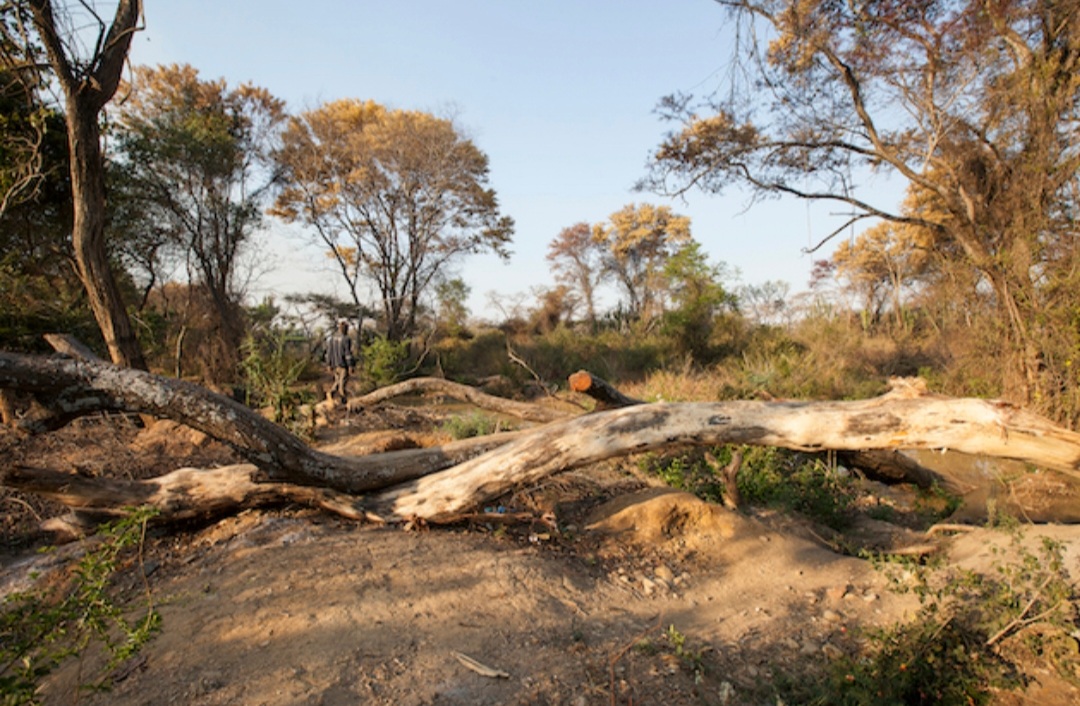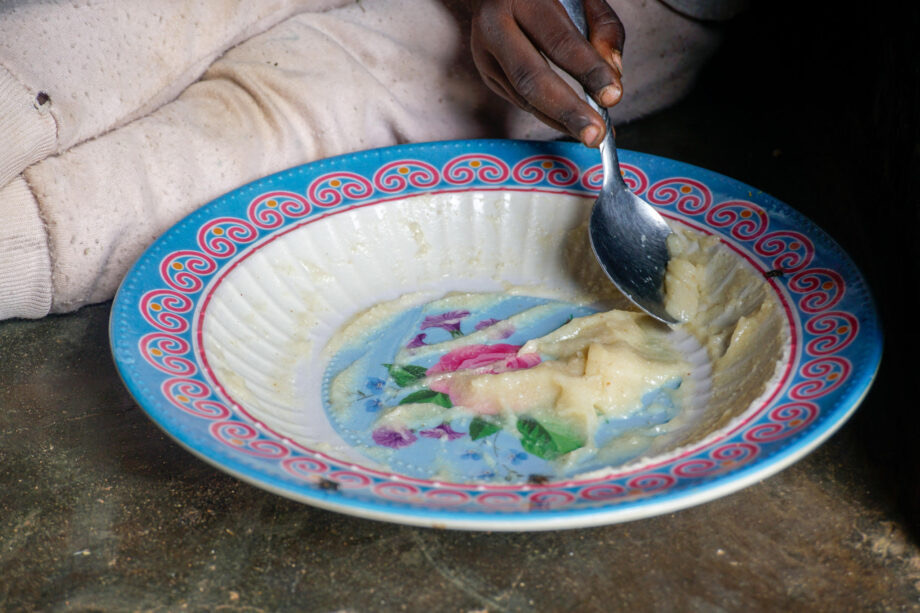BY LINDA MUJURU
At Mbare marketplace, a major trading hub in Zimbabwe, plastic bags are everywhere. Vendors stack them at the ready for customers, who tote their purchases home and often discard the bags after a single use. Many of these plastic bags are either imported from China or sold by local Chinese companies, and fail to meet Zimbabwe’s standards for plastic packaging.
“We know this type of plastic isn’t allowed, but we sell it anyway. It’s cheaper, and there is a huge demand for it in the market,” says Tichaona, a local plastic bag vendor who sources his bags from a Chinese company in Harare. He provided only his first name for fear of arrest.
In some cases, plastic bag buyers don’t even know that the bags are thinner than is legal, says one employee at Colour Maximal, a Chinese-owned plastic manufacturing company in Harare, who asked Global Press Journal to protect his identity for fear of losing his job.
“We know what the quality should be, but we never produce it,” he says. “Customers are told these plastics meet the 30-micron requirement, but that’s simply not true.”
Zimbabwean law bans the production and distribution of plastic packaging thinner than 30 microns (a unit of measurement to describe plastic thickness), except for bread packaging, which must measure at least 25 microns. However, the country faces an influx of inexpensive plastic imports from China, coupled with a rise in Chinese-owned manufacturing firms, which now dominate the plastic industry.
Many of these importers and manufacturers exploit weak law enforcement to produce plastics that measure lower than the standard, exacerbating a pollution crisis that’s already critical.
“[They] don’t care about quality. Their products are cheaper. People can just walk in and buy in bulk,” says Donald Marumbwe, who has worked in the plastic manufacturing industry for over 30 years.
Global Press Journal collected samples from Colour Maximal and independently tested them. All samples were thinner than the required 30 microns. Some bags measured were just 20 microns.
Global Press Journal also measured bread bags from Mbare marketplace, which, according to the regulations, should range between 25 to 30 microns. Some of those bags measured as thin as 6 microns.
Thin plastic bags, often used just once, can take thousands of years to decompose, turning into harmful microplastics that threaten wildlife and enter the human food chain. Thicker plastic is likely to be reused and recycled, reducing environmental impact.
But thin plastic is cheaper to make, says Tatenda Murwira, a manager at Colour Maximal. It’s the reason his employer manufactures this kind of plastic, despite the law. “We’re profit-oriented,” he says. “It’s all about saving materials and keeping prices competitive.”
In the end, it’s Zimbabweans who suffer. A significant portion of plastic waste — approximately 18% of the country’s total waste — isn’t disposed of properly. It has clogged rivers, littered streets, and, worse, been linked to deadly flash floods and animal deaths due to ingestion. Since 2010, plastics, both locally produced and imported, have caused the deaths of about 5,000 animals.
Amkela Sidange, the environmental education and publicity manager at Zimbabwe’s Environmental Management Agency, says they conduct routine inspections to prevent the manufacturing and distribution of plastic that doesn’t meet requirements. Those caught violating the law face fines that could reach 500 United States dollars.
But Murwira, the manager at Colour Maximal, says that while officials from the environment agency have visited the company, which has been operating for more than a decade, they’ve never inspected the factory. “They never check the quality of our products,” he says.
Once the packaging gets into the market, it’s hard to trace back to the manufacturer. “[The companies] don’t put their names on the packages because they don’t want it traced back to them,” Marumbwe says.
None of the plastic bags Global Press Journal examined at Mbare marketplace had a manufacturer’s name on them.
Although South Africa is the main supplier of materials used to produce most of the plastic packaging circulating in the country, these imports are on the decline while imports from China are on the rise. In 2012, Zimbabwe imported 10.9 million dollars’ worth of plastic raw materials from China. By 2023, that number had increased fivefold to 54.8 million dollars, according to data from Trade Economics.
“We’re profit-oriented. It’s all about saving materials and keeping prices competitive.”
Tatenda Murwira, a manager at Colour Maximal
China is also a major player in Zimbabwe’s manufacturing sector, largely thanks to former President Robert Mugabe’s push to strengthen ties with East Asian countries. Mugabe famously described China as “our second home, a part of us” in 2006. By 2015, China was Zimbabwe’s biggest foreign investor, and its hold over key sectors, including mining and manufacturing, has grown.
The investment has promoted growth, but it’s also come with challenges, including environmental degradation.
Chinese-owned companies’ disregard for regulation is indicative of a larger problem, says Gift Mugano, a professor of economics at the Durban University of Technology, in South Africa.
“They are in bed with the politicians. [The] Chinese work with people in high offices, so they’re kind of covered, and they don’t respect the environmental laws,” Mugano says.
It’s a widespread problem in Africa, where dependency on such investors is common, he says. In Zimbabwe, the situation is even worse because the country is mired in debt, which makes it susceptible to influence from one of its primary investors.
“[It’s] a new wave of neo-colonialism,” Mugano adds.
Zimbabwe has made several attempts to address its plastic problem, including a 20% tax on plastic bags, which went into effect in January. But companies routinely dodge that tax, just as they’ve avoided the plastic bag regulations, says the ColourMaximal employee who spoke on condition of anonymity.
“At the end of 2024, Zimbabwe Revenue Authority representatives visited our offices, threatening to shut us down for nonpayment of taxes,” he says.
Murwira, the manager, says Colour Maximal is fully tax compliant.
Global Press Journal visited a plastic-packaging production company formally registered as Liwei Wang but currently trading as Multiple Star. Upon inquiry, factory representatives said that their plastic bags measured only 20 microns, short of the standard.
On display at the site was an expired 2024 tax clearance certificate.
Global Press is an award-winning international news publication with more than 40 independent newsrooms in Africa, Asia and Latin America.




 Slider3 years ago
Slider3 years ago
 National4 years ago
National4 years ago
 Opinion3 years ago
Opinion3 years ago
 Tourism and Environment4 years ago
Tourism and Environment4 years ago
 National2 years ago
National2 years ago
 National3 years ago
National3 years ago
 National2 years ago
National2 years ago
 National4 years ago
National4 years ago
